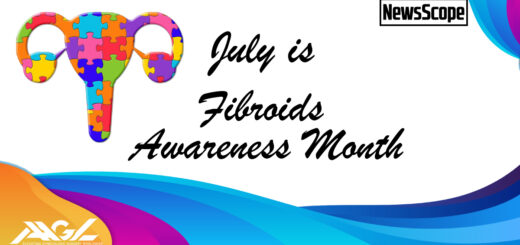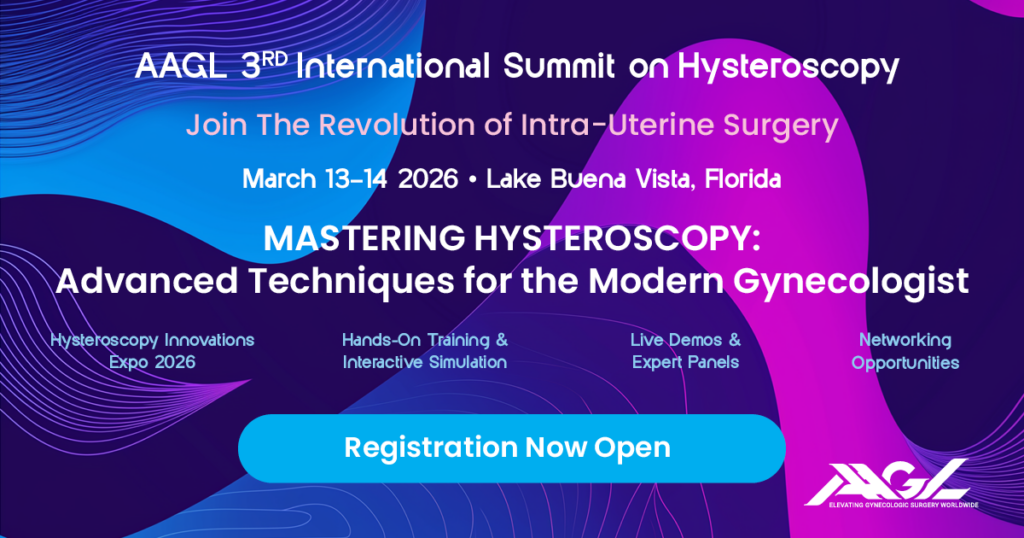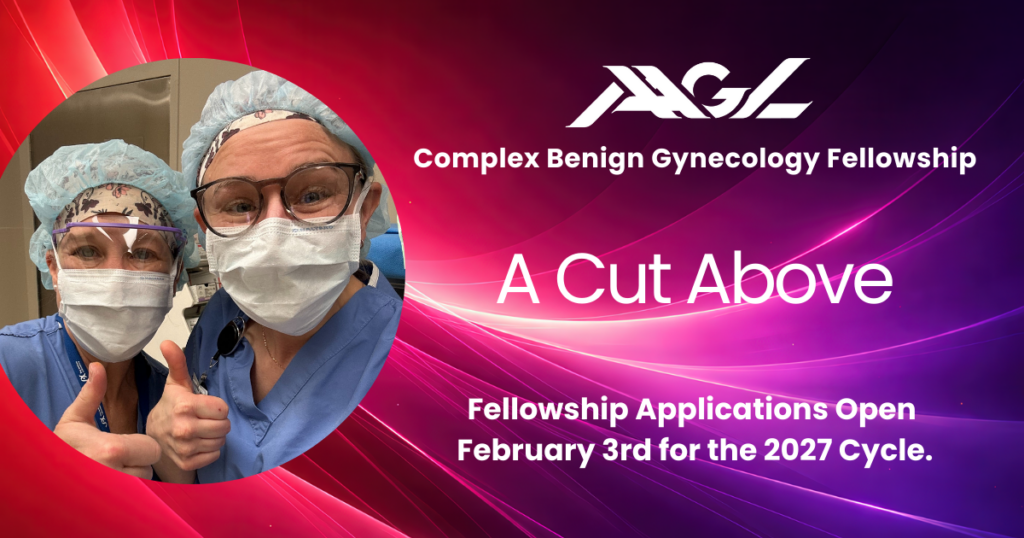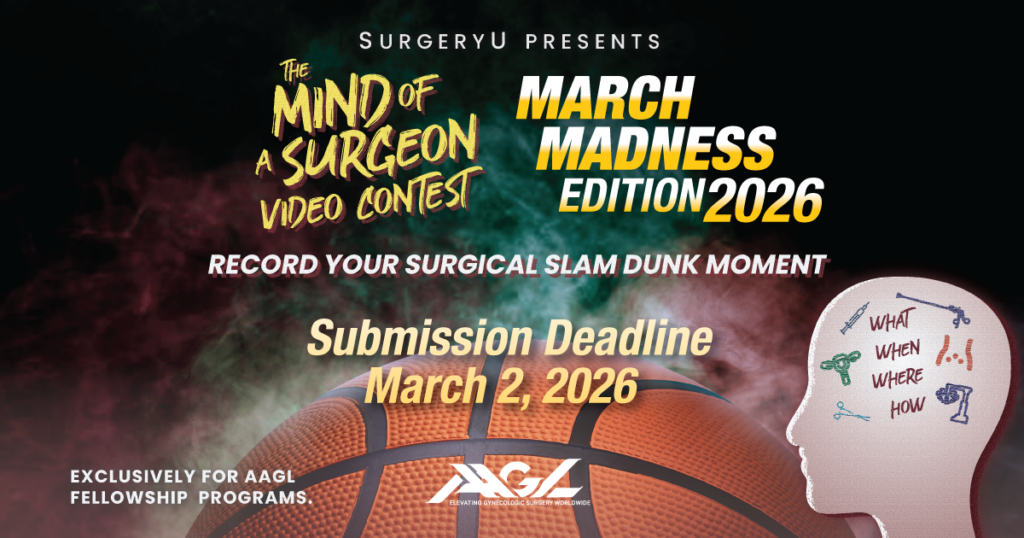Pioneering the Future: AAGL’s AI and Emerging Technologies Task Force in Minimally Invasive Gynecology

As artificial intelligence (AI) continues to transform healthcare—optimizing diagnostics, enhancing surgical precision, and streamlining patient care—scientific societies must take a proactive role in shaping its development and application. For the AAGL, which has long championed innovation in MIGS, this means leading the integration of AI, augmented reality (AR), and virtual reality (VR) into our specialty with rigor, responsibility, and foresight.

Why AI Matter to AAGL and MIGS
- Elevating Patient Outcomes: AI-driven image analysis and decision-support tools can help identify subtle pathologies, personalize surgical plans, and predict complications before they occur.
- Advancing Surgical Training: VR simulators and AR-enhanced live-surgery overlays empower trainees/fellows to develop proficiency more rapidly, practicing rare procedures in risk-free environments, and receiving real-time performance feedback.
- Enriching Intraoperative Guidance: AR systems can project three-dimensional reconstructions of a patient’s anatomy directly onto the surgical field—improving orientation and reducing reliance on memory. VR planning suites allow surgeons to rehearse complex cases in immersive detail.
- Optimizing Workflow: From automated documentation to smart-instrument tracking, AI and AR solutions can reduce administrative burden and allow surgeons to focus on what matters most—patient care.
Introducing the AAGL AI and Emerging Technologies Task Force
To ensure that these technologies deliver on their promise safely and ethically, the AAGL has established a dedicated Task Force charged with:
- Defining AI Task Force Organizational Structure: Establishing the task force governance, subcommittees if needed, and reporting pathways to integrate AI initiatives seamlessly into AAGL’s existing framework.
- Navigating Ethics, Legal & Regulatory Implications: Partnering with bioethicists, legal advisers, and regulatory experts to create frameworks that safeguard patient privacy, safeguarding appropriate use of AI in clinical, academic or educational activities, ensure informed consent for AI/AR-assisted procedures, clarify liability, and guide device approvals.
- Assessing Needs & Opportunities: Conducting surveys and stakeholder interviews to pinpoint clinical, educational, and ergonomic gaps where AI, AR, or VR could deliver the greatest value.
- Educating & Empowering Members: Developing foundational AI curricula and hands-on workshops to teach AAGL members how to integrate AI tools into their daily professional practice—enhancing clinical decision-making, automating routine tasks, saving time, and allowing more meaningful patient interaction.
- Addressing Safety, Validation & Human Factors: Collaborating with clinical researchers and human-factors engineers to design robust studies, define performance benchmarks, and evaluate cognitive workload, usability, and ergonomic impact.
- Charting Development Roadmaps: Outlining priority areas—such as computer-vision guidance for hysteroscopy, AR overlays during laparoscopy or predictive analytics for post-operative recovery.
Who Should Join
We invite:
- AAGL members with backgrounds in data science, machine learning, biomedical engineering, or immersive technologies.
- Professionals from the high-tech/AI/AR/VR industry eager to apply their expertise to MIGS
- Legal and regulatory advisers with experience in medical devices, patient rights, and healthcare policy
If you are passionate about pioneering the next frontier of minimally invasive gynecology—helping to define standards, guide research, and shape policy—please consider applying to the AAGL AI and Emerging Technologies Task Force. Together, we will ensure these cutting-edge technologies become forces for good in MIGS, enhancing safety, efficacy, and access for women worldwide.
To express your interest, or to nominate a colleague, please complete this application. Deadline for expressions of interest: August 15, 2025.






